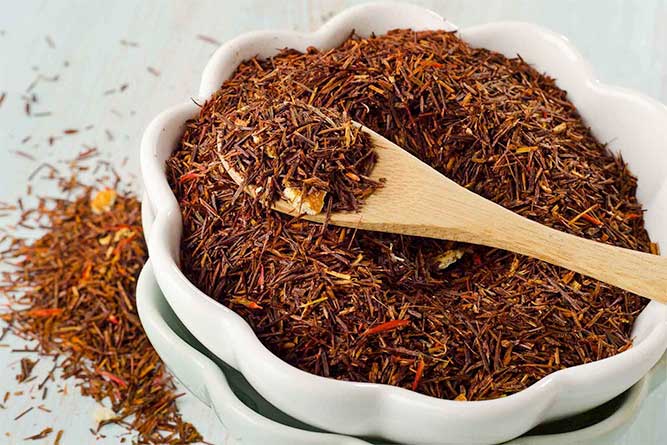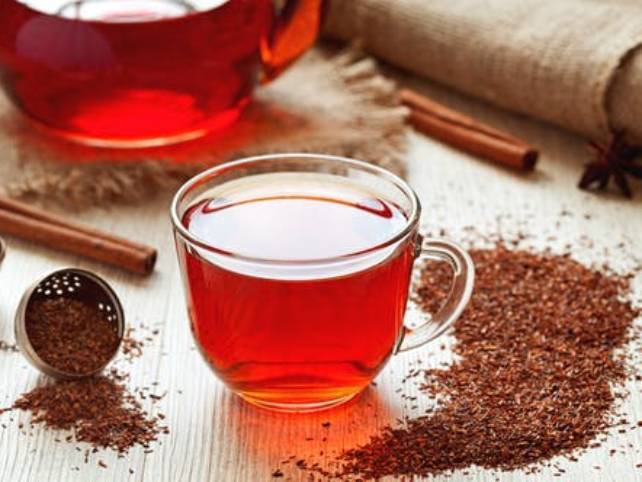The two-year pandemic has led to major shifts in grocery buying patterns as the world became accustomed to spending more time at home. Among the biggest food and drinks predictions recently announced by social media network, Pinterest, “afternoon tea” is to become the new happy hour. Their predictions were based on the interests of their 444 million users worldwide with many choosing tea with a friend over drinks after work.
The changing dynamics have worked in favour of the tea industry, with food and beverage experts citing 2022 as the year when consumers will start to prioritise products that deliver functional benefits to improve personal health and well-being.
Nici Vorster, a director of the SA Rooibos Council says online searches for healthy teas, tea parings, parties and the like have been spiking across age groups, which is good news for the local tea industry.
“It will be interesting to see how European consumers respond to Rooibos now that it has protected designation of origin (PDO) status.”
He notes that consumers are increasingly concerned with the origin and quality of products they consume, and it’s no different for tea.

Rooibos is the first African food product to receive PDO status from the EU, which identifies and links a product to a specific region, associating its quality and reputation to that area, which makes it a more sought-after product.
Going forward, all Rooibos products sold in the EU will bear the PDO seal, distinguishing it from other teas.
He says the overall demand for functional (healthy) food and drinks, like Rooibos, is gaining momentum both locally and abroad, thus the sector is expected to grow exponentially.
In SA, the hot tea category is forecast to register the fastest value growth at a CAGR of 7.5% over the next three years and is the largest in volume terms, registering sales of 33.1 million kg in 2020.
Some of the dominant trends that are expected to dictate the tea sector include:
- Adaptogenic teas (wellness tea) – An adaptogen is a plant extract that is believed to increase the body’s ability to fight the damaging effects of stress and inflammation, and promotes normal physiological functioning. “Many consumers are adding complex herbal blends to their tea, like chamomile, ginger, turmeric and ginseng to further enhance the health benefits of the teas they drink. To make it easier for time-constrained consumers, many of these adaptogens have now been added to Rooibos products,” remarks Vorster.
- Customisation – Personalisation is huge, especially with customer tastes becoming more discerning. Being able to design your own tea by mixing different flavours for a unique taste and further personalising it by giving it a name, enables individuals to express themselves while satisfying their taste buds. “Customisation is a trend in consumer preferences that is sure to gain further prominence in 2022, especially among millennials – the fastest growing demographic worldwide.”
- Ready to drink teas – RTD teas are gaining in popularity and are seen as healthier alternatives to canned or bottled fizzy drinks. Watch this space as marketers launch a greater variety of cold teas to choose from in the short- to medium term.
- Tea experiences – Tea lovers will seek out restaurants and cafés that have an extensive tea menu rather than the standard one or two options. Many enjoy brewing loose leaf tea and will search for the same immersive experience at an eatery where they can indulge in unique blends and flavours. The emergence of tea pairing menus, as you would pair wine with different dishes, will also become more prominent and will attract new customers looking for a sensory experience.
- Subscriptions – A few years ago the tea subscription business model was mostly niche, but the pandemic jolted consumers out of routine purchase behaviours, propelling online sales and home delivery. “The model involves ordering tea in a variety of forms ranging from RTDs to a curated box of tea bags or loose leaf tea on a monthly or more regular basis directly to your door. Tea subscriptions are becoming more prevalent and it’s also a great way to retain and cultivate customer loyalty, which will become more critical than ever in a very competitive space,” adds Vorster.
- Tea cocktails and mocktails – With the sober curios trend taking off and fewer people drinking alcohol during a night out, tea-based drinks are becoming a staple in trendy bars and pubs worldwide. “Tea makes for an ideal base ingredient and offers a much greater variety of options when it comes to mixing alcoholic and even non-alcoholic drinks. It also adds a different dimension to many favourite cocktail formats.”
- Gifting – Specialty and novelty teas are also becoming a popular gifting option in 2022. Tea is no longer a simple grocery item. High quality, premium tea has become a thing of sophisticated consumption. Much like aficionados will go to the ends of the earth to search for gourmet quality coffee, tea will follow in the same path. Especially, younger consumers who are eager to try new tea varieties and different brewing techniques. The trend is likely to boost sales of tea ware and accessories, such as infusers and strainers, along with gourmet teas and customised blends in fancy packaging – ideal for gifting.
- Certification and traceability – Certified sustainable tea is a must for a growing number of consumers for whom ethical tea sourcing, traceability and environmental sustainability are important. It’s also becoming a priority for the industry at large. Certified tea sales grew by 49% over the last few years and include tea with Rainforest Alliance certification, as well as organic and Fairtrade
“Without a doubt, the pandemic boosted specialty tea sales all over the world, which gives the sector a distinct advantage. As new consumers turned to tea and existing tea drinkers drank more tea, to boost their immunity and general health, COVID-19 solidified the market for immune-boosting products.
“Since consumers are likely to make tea a part of their everyday wellness routine for some time to come, we can expect to see more tea products being positioned as superfoods with added functional ingredients like probiotics, adaptogens and vitamins.
“The tea industry is fast changing to adapt to the dynamics trends of the day, and we look forward to watching these take shape in grocery aisles and other sectors of the market this year,” says Vorster.

